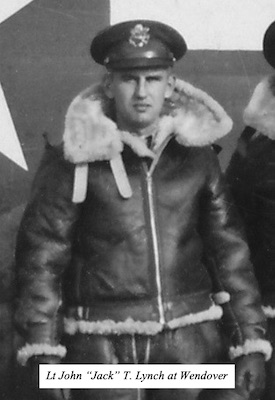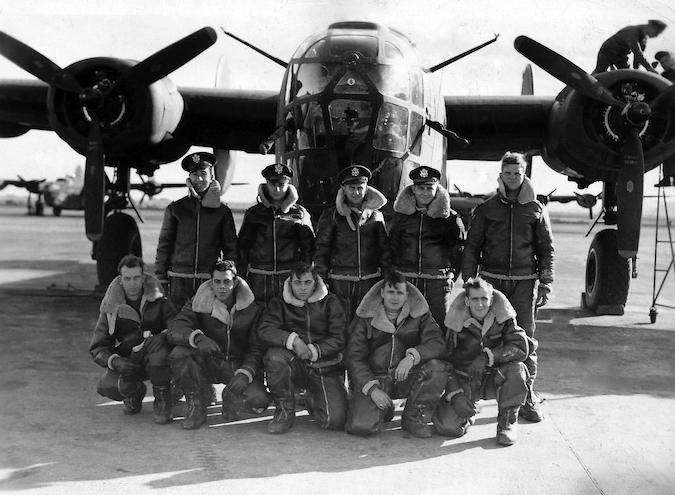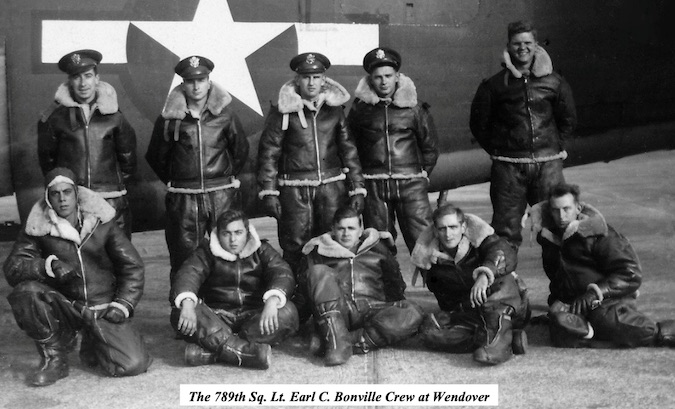Memorial in Utah will honor Medina native who died training on B-24 Bomber
MEDINA – A memorial will be unveiled in September in Utah that will honor a Medina native and others killed while training on a B-24 Bomber.
Lt. John “Jack” Lynch, 24, died on Feb. 7, 1944 at Wendover Field. He had married Jean Patterson two weeks earlier on Jan. 24.

Lt. John Lynch grew up in Medina. He was killed at age 24 in a plane crash at Wendover Field in Utah. He was a navigator on a B-24 Bomber.
Lynch was born in Dunkirk and moved to Medina as a young boy. He attended St. Mary’s School and graduated from Medina High School in 1936, ranked second in his class. He was president of the senior class, quarterback of the football team and active in many academic clubs. He was a member of St. Mary’s Church and the Medina Council Knights of Columbus.
He graduated from the University of Michigan in 1941, and was a member of the Law Club. He attended the Michigan Law School for a year, and then enlisted in the Army Air Corps on Dec. 7, 1942. He received his navigator’s wings at Hondo, Texas on Aug. 5, 1943. He was sent to Wendover Field in Utah early in September 1943.
Scott Patterson is Lynch’s nephew and lives in Salt Lake City, Utah. He reached out to the Orleans Hub about the memorial that will honor the crew of nine crew lost at Wendover, days before the group was to depart for England. Lynch was among 15,500 young men killed in air-crew training and transition to England whose names are so often overlooked, Patterson said.
“Although they never faced flak or Messerschmitts, their sacrifice was as real and memorable as those shot down over Germany,” he said.
Patterson said he grew up in the years after World War II. His uncle’s death “weighed on my father for decades.” Patterson’s father served in the Navy in the Pacific in WWII. Lynch’s wife would remarry a “wonderful man” and have children, Patterson said.
He regrets there aren’t close family members surviving Lynch.
“It seems as if he is too easily forgotten,” Patterson said. “He had not completed training and gone overseas into battle. There were no combat missions, no stories of heroism or medals. He was not a part of events that historians usually write about, but his sacrifice was no less important.”
Lynch and his eight fellow crew members took off at 10 a.m. in a B-24H for formation training on Feb. 7, 1944.
“They were airborne for just a few minutes when the plane slammed into a mountainside northeast of the airfield,” Patterson said. “A short life of so much accomplishment and of such promise was over, as were the lives of fellow crew members.”

Lt. John “Jack” Lynch is center in back row.








































































